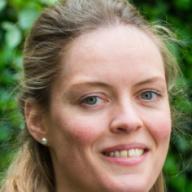 \
&
Contact us
\
&
Contact us
 \
&
Contact us
\
&
Contact us
Marie Sklodowska-Curie Actions (MSCA) is a programme for doctoral education and postdoctoral training. MSCA equips researchers with new knowledge and skills, including transferable ones and providing them with an international as well as inter-sectoral exposure (including through academia-business collaboration). MSCA also contribute to the development of excellent doctoral programmes, postdoctoral training programmes and collaborative research projects.
Main principles applying to MSCA
There are five Marie Sklodowska-Curie Actions:

margot.beereboom@fwo.be
+32 2 550 15 76
Find the contact info on the site of WEWIS
The National Contact Points (NCPs) provide support, guidance, and practical information to potential applicants, helping them navigate funding opportunities and application processes.
The Programme Committee (PC) members represent their country in decision-making about the work programmes, evaluate implementation, and provide strategic input on priorities and calls.
MSCA Research Infrastructures Health Culture and society
On 11 December 2025, the European Commission has adopted the Horizon Europe Main Work Programme 2026-2027 and has published it on the EU Funding & Tenders Portal. The Work Programmes can be found under reference documents on the Funding & Tenders Portal.On the NCP Flanders website the published work programmes can be consulte... read more
Infosheets contain edited content on aspects related to this programme. They are reviewed at least yearly.
Related links are easy pointers towards external information. We curate the list, but are not liable for the destinations.
Documents contain additional information related to this programme, and are similar to related links.
The Department of Economy, Science and Innovation of the Flemish government coordinates the Horizon 2020 Coordination and Support Action SAPHIRe, which started on 1 December 2018. The aim of the project is to secure the adoption of personalised medicine in all European regions, including sparsely populated and remote regions and regions with different innovation capacities.
The activities of SAPHIRe are complementary to the smart specialisation partnership on personalised medicine – S3P4PM, which is also coordinated by the Department of Economy, Science and Innovation.